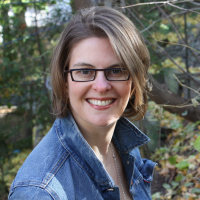A few days ago, I blogged about sociologist Steven M. Cohen’s study (coauthored with Steven Fink) on Habonim Dror. Meanwhile, Cohen has been making headlines with a provocative new initiative he has floated with Rabbi Kerry Olitzky of the Jewish Outreach Institute. For those non-Jews (typically among those married to Jews) who don’t wish to convert, Cohen and Olitzky are proposing the roll out of an alternative pathway to connection with the Jewish people. Their “Jewish Cultural Affirmation” plan would involve a more culturally focused program of study accompanied by experiences of “lived Jewishness” with a public certificate being earned at the end.
The proposal, first floated through JTA, then parsed on Facebook, and most recently debated on the pages of various other Jewish outlets, has seen a good deal of backlash. Rabbi Andy Bachman, of the popular Beth Elohim synagogue in Park Slope, Brooklyn, writes, “this duck won’t fly” for the reason that “there’s no need to imagine that faith would be a stumbling block to plain old conversion. I can’t imagine that any rabbi I know would turn someone away from the community because they were ambivalent about religion or God.”

Mark Paredes, a Mormon who has worked for the Israel foreign service and various arms of the Jewish community says the proposal “helps no one,” that it will merely “water down” Judaism.
Harold Berman calls it “shallow, impractical, and offensive.” He writes, “Judaism addresses the most pressing life-and-death issues, teaches us how to infuse the sacred into all of existence and presses us to strive to become a ‘light to the nations.’ To reduce all of that to a mere cultural affirmation is to say that the most profound elements of Judaism are unimportant.”
To my mind, these concerns are valid. But there are three points these critics miss, points that make the Jewish Cultural Affirmation idea worth seriously considering.
First, we need to consider why many non-Jews who marry Jews don’t convert, given the array of conversion options (some more and some less stringent) that exist. Might there be something fundamental about the idea of conversion that does not sit comfortably with these non-Jewish spouses? I think back to my dating days, contemplating what my strategy might be should I have fallen in love to the point of contemplating marriage, with someone who wasn’t Jewish. Though I never ended up facing that situation, I quickly realized that demanding (or even gently requesting) that my hypothetical partner convert was something that made me uncomfortable. The reason was this: asking someone to give up who they are, to renounce a certain identity they have been raised with, is a tall order. No wonder, that, in the statistics Cohen and Olitzky cite of a 2011 study of New York Jews, 5 percent identified as being Jewish “by personal choice” (that is, without conversion), while less than half that number (2 percent) stated they were converts.
Olitzky clearly realizes the untapped potential for deepening Jewish connection among non-Jews who marry into the Jewish community. The “Mother’s Circle” program his organization leads is precisely a way to connect with women married to Jews who wish to enrich their Jewish knowledge and familiarity. With the limited experience I’ve had with it in my capacity as a board member and advisor in my city’s Jewish Community Center, I know that for the participants, it is deep, meaningful and challenging.
Neither has coexisting with a dual identity—particularly when two religious heritages are being passed down to one’s children—been particularly welcome in the Jewish community. In fact, raising children with two faiths is considered such a novelty that The New York Times recently saw fit to publish an op-ed which simply recounted that form of Jewish-Christian parenting. You can’t be “a little bit” pregnant, as logicians are fond of saying. But you can indeed be pregnant with twins.
In his criticisms, Bachman may be placing too much emphasis on belief (or non-belief) in God. The point of this alternative pathway doesn’t seem to me to be primarily about accommodating atheists. (From an experiential perspective, godless Judaism isn’t the oxymoron some think it is.) The pathway is well suited to those for whom adopting the trappings of religion, including going before a Beit Din panel, considering the harrowing idea of adult circumcision (or even the demand to draw blood from the penis of a man who is already circumcised), the use of a mikvah, and so on, smells of dogma and superstition.
So what of those who eschew the formalities of religion but who see themselves as being driven to be immersed in cultural Judaism—not the lox and bagel kind, Olitzky was careful to note on Facebook, but the deep, intellectual, cultural, knowledgeable and textured kind—in a way that leads to some communal recognition of their efforts and a recognition that they are ready to contribute in kind?
There is one final point that is crucial to make, and that is the crisis of Jewish literacy facing us today. How many adult Jews in North America are conversant with Jewish texts, are familiar with the nuances and complexities of Jewish history, can speak Hebrew or Yiddish, have a meaningful read of Israeli politics and culture, can lead a Hebrew sing-a-long, and who know who Arik Einstein was?
Depending on the depth and breadth of the program the authors are envisioning, not all JCA “graduates” may be able to tick all these boxes. But by proposing the idea, at least Cohen and Olitzky are reminding us that when it comes to Jewish knowledge in the Jewish community—not only declared commitment to Jewish continuity—we have a long way to go.





